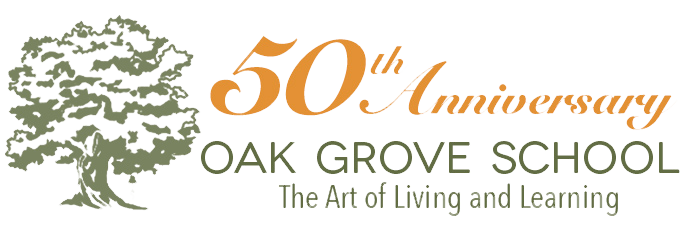Our student newspaper The Oak Grove Inquirer is one of many outlets students have for sharing their passions, expressing their artistic visions, and guiding community conversations.
Digital Media class offers students many ways to explore the power of image making, storytelling, and conveying messages through digital art, digital photography, and video.
Enjoy video and photos from this year’s High School Spring Showcase highlighting student work in studio arts, ceramics, woodworking, & music.
Through student assemblies, class meetings, faculty and staff in-service, and parent education, students of all ages, parents and staff will have the opportunity to engage with Benjamin throughout his stay in April.
While the high school senior class is visiting our sister schools in India each year, the High School at Oak Grove dedicates two weeks to our “Mini Projects.” Teachers lead small groups of students through an in-depth learning experiment into a craft, skill, or concept that piques the curiosities of both teachers and students. Examples have included: screen printing, song writing, sewing, cooking, screenwriting, ornamental mending, and improv.
In Episode 23 “Education as a Vehicle for Social Change,” Founding Mothers Podcast host Emily Race and Head of School Jodi Grass discuss the freedom that Oak Grove’s teachers have to implement activities that foster personal and social growth, outdoor and travel experiences to prepare youth and parents for the transition to adulthood, how students can support their mental health, and the value of questioning one’s thoughts to develop compassion.
About once a month, our high school students attend a Lizard Talk, where a guest speaker presents and shares knowledge on their subject of expertise.
About once a month, our high school students attend a Lizard Talk, where a guest speaker presents and shares knowledge on their subject of expertise.
Thank you for being here with us.
Oak Grove’s Head Chef, Julia San Bartolome, reflects on her decision to join the school and the delectable role food plays for the community.
CONTACT OAK GROVE
Oak Grove School of the Krishnamurti Foundation of America
CALL: 805 646 8236
EMAIL: info@oakgroveschool.org
MAIL: 220 West Lomita Avenue
Ojai, California 93023-2244
Latest News
 NYC VisitOctober 28, 2025 - 3:38 pm
NYC VisitOctober 28, 2025 - 3:38 pm Garden Dispatch: Autumn ColorsOctober 28, 2025 - 12:55 pm
Garden Dispatch: Autumn ColorsOctober 28, 2025 - 12:55 pm Thank You, Ojai!October 21, 2025 - 9:25 am
Thank You, Ojai!October 21, 2025 - 9:25 am Peace Week 2025September 29, 2025 - 3:02 pm
Peace Week 2025September 29, 2025 - 3:02 pm First Day of School 1975September 25, 2025 - 12:59 pm
First Day of School 1975September 25, 2025 - 12:59 pm
Non-Discrimination Policy
Oak Grove School does not discriminate on the basis of any individual or group identity characteristics, such as but not limited to race, color, gender identity or expression, sexual orientation, age, national or ethnic origin, differing mental or physical abilities, or family structure in the administration of its educational or admissions policies, employment practices, scholarship, and other school-administered programs. View the unabridged policy.


